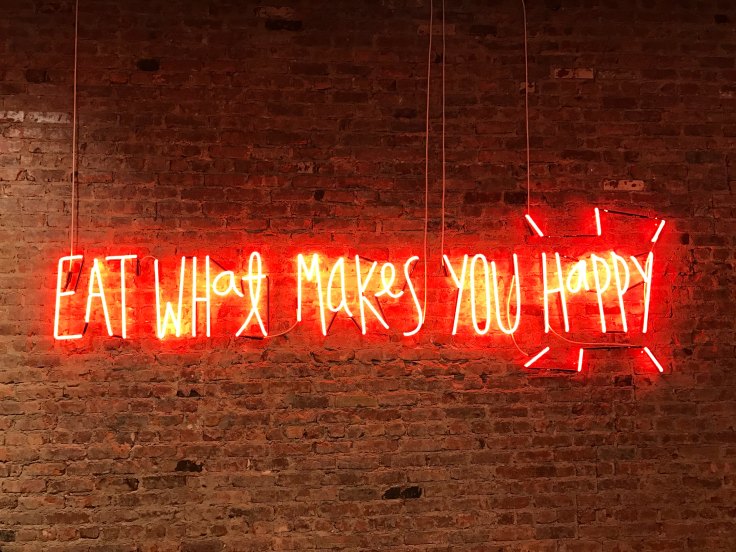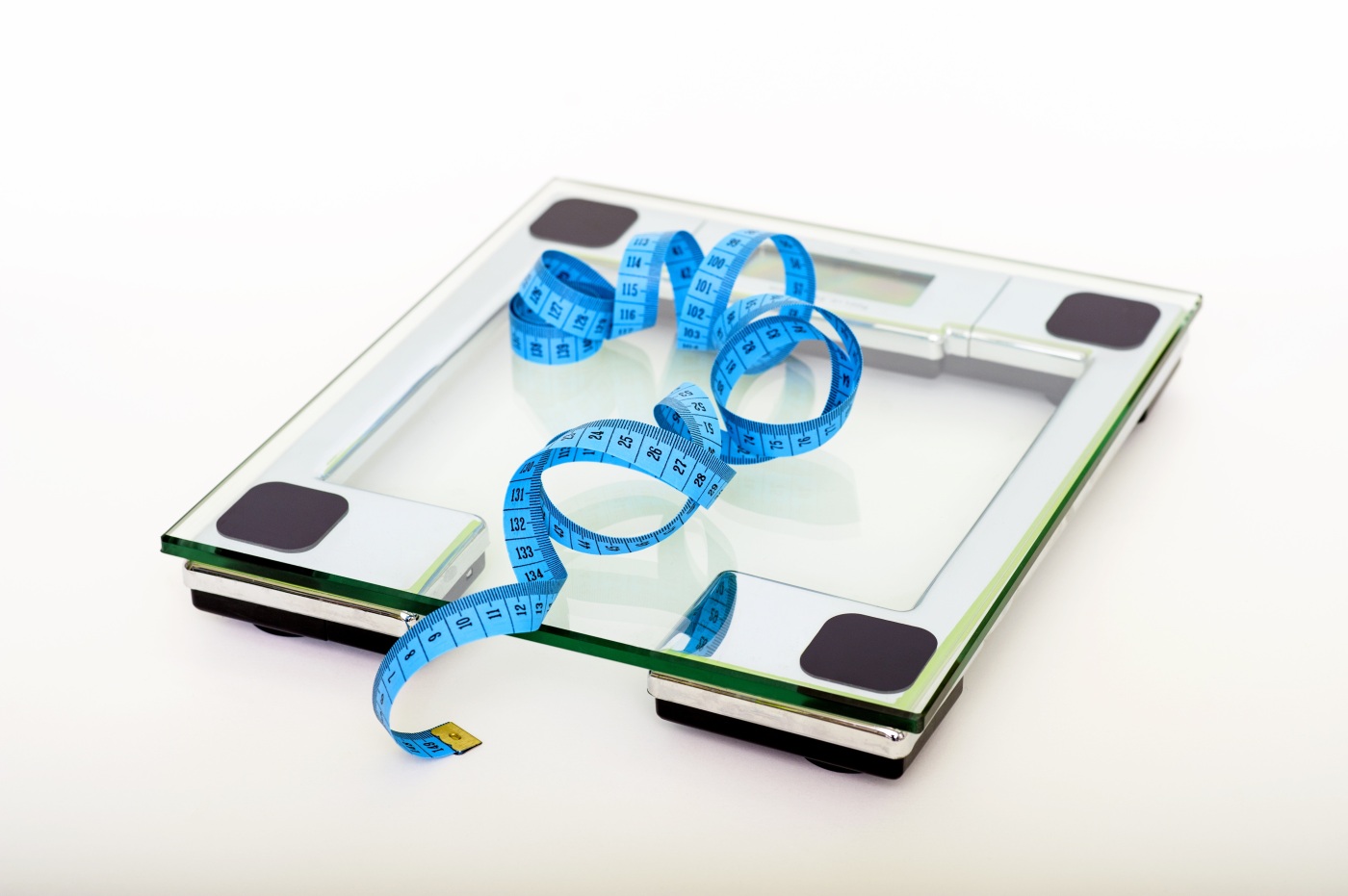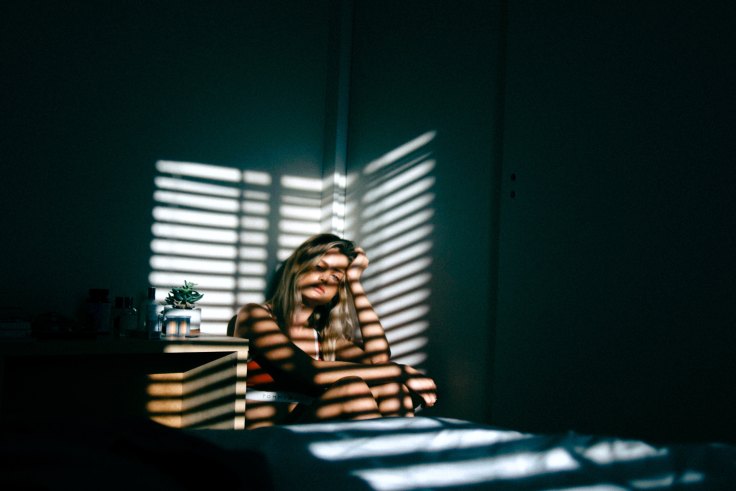I recently watched a Louis Theroux documentary called ‘Talking to Anorexia’. If you’re not familiar with Louis Theroux then I highly recommend you watch as many of his documentaries as you can find (can you tell I’m a fan?!). He’s geeky looking and very gentle in his interviewing style, which I think helps people feel more comfortable in opening up to him.
In ‘Talking to Anorexia’ Louis went to an in-patient unit in London for people diagnosed with eating disorders, both males and females. The women he interviewed came from different walks of life. One woman was in her 60s having suffered with the condition since she was 18 years’ old, while another was in her early 20s had been bullied as a child and had refused an arranged marriage.
What is an eating disorder?
People often mistake it to be an issue someone has with their weight. The one thing I want to make clear is that eating disorders are a mental health condition.
To explain a bit more, whilst the external symptoms (i.e. what people see) may involve the person’s preoccupation with food (e.g., restricting/over-eating/bingeing and purging) and their physical appearance, the internal reasons are far more complex.
Close to home
I found the documentary difficult to watch in some ways because it reminded me of the anxieties and fears I experienced during my own eating disorder.
My eating disorder started in my early 20s and although the behaviours (i.e. restricting food/bingeing and purging) stopped by my mid-20s, my relationship with food didn’t really improve until my 30s.
I wouldn’t want to speak for everyone with an eating disorder, but some of the reasons I experienced it were:
- Wanting to be in control. I didn’t feel in control of my life and I’d had some early life experiences which left me feeling that bad things were always going to happen.
- Not feeling worthy or ‘good enough’. I’ve talked about this before. During my eating disorder I believed that if I was ‘thin enough’ that people would like me; I equated my value as a person to my weight.
- Having an intense fear of food. I thought even eating a small amount of food would make me fat. If I was put into a situation where I had to eat (e.g., family meal) then I would want to get the food ‘out of me’ as quickly as possible. There was huge guilt and shame around eating.

One of the young women in the documentary described one aspect exactly how I felt about it. She said she wanted to rip the skin and fat off her body and didn’t want to be in her own skin. It’s a horrible feeling and one which I knew well.
The hidden disorder
The documentary focused mainly on in-patients of a hospital. Most of the young women featured in the documentary were at an unhealthy weight, according to the Body Mass Index (BMI) calculation.
I understand why the documentary would focus on people who were often near to death when they were admitted to the hospital. However, it’s worth noting that there are plenty of people out there with eating disorders who have a healthy BMI. I was one of those people.
When I was in my 20s I remember being taken to the doctor by my mother, who was worried about me. The doctor asked me to step on the scales and when my weight measured as being within the healthy range the matter was dropped. This only served to annoy me more and reinforce the fact that eating disorders were not about weight. I was mentally unwell!
I felt as though I had to be a certain level of ‘unwell’ to get the help I needed. I managed to get an appointment to see a psychologist. After explaining everything I’d been through and how I felt I was referred to a stress management group. I didn’t need stress management; I wanted to talk to someone.
So, it’s worth remembering that even if someone doesn’t ‘look’ ill, it doesn’t mean that everything is okay. Remember, it’s a mental health condition.
Can you ‘get over’ an eating disorder?
Without wanting to sound as though there’s no hope for people with eating disorders, I’m not sure you ever ‘get over’ them as such. I think people perhaps become better at managing them so they impact less on their lives.
In my experience, and other people I’ve spoken to, the eating disorder leaves its ‘mark’ and I’m not talking about a physical mark.
Like I said before my relationship with food is much healthier now. However, there are still times where I may deny myself the ‘slice of cake’ because I worry about the long-term effects, or where I become preoccupied with calories if I’m stressed about other things in my life. I also still have difficulty in viewing my physical appearance objectively.
But, these are things which only affect me occasionally. I accept that I still have some remnants from the eating disorder and I accept that. I just make sure that I don’t become complacent. Eating disorders may have us think that we’re in control, when in actual fact they are in control of us. I won’t allow that to happen to me again.
If you’re concerned about yourself or someone else and want to find out more then the organisation Beat offers information and support to those affected by eating disorders.


Kudos to you for recognizing that you had a problem and working towards a solution, despite your first doctor wanting to pretend all was fine. Mental health is still such a taboo subject, so it’s wonderful to see people willing to openly talk about their experiences. The more people talk, the more others will hopefully begin to understand. And if not, at least we know we aren’t alone.
LikeLike
Thanks, Aimie. I definitely think talking more about mental health is useful. You never know who’s suffering in silence 🙂
LikeLiked by 1 person
It’s so great that you got help and I’m glad to hear you have a better relationship with food. Kudos to you for making the effort to get better.
LikeLike
Thanks, Lisa 🙂
LikeLiked by 1 person
You’re welcome!
LikeLike
Thank you for sharing your story with us. I have been on the other side watching my sister and feeling utterly helpless. She did get help and is doing better but I can see certain moments when tendencies come back and I always wonder if she is aware and when to say something or if that risks in starting the spiral. So it is always good to read such things to gain more understanding.
LikeLike
Thanks for sharing about your sister, Tobia. I imagine it would leave people feeling helpless as it’s such a pervasive disease which affects lots of people around the person. Your sister is lucky to have you around to keep checking out that she’s ok. I hope she continues to get better 🙂
LikeLike
Thanks so much for writing this, Jo. It’s a subject matter so very close to my heart as I have witnessed more than one close friend become ill with their eating disorders. It’s absolutely heartbreaking & doesn’t matter how many times you tell them you love them & that they’re wonderful, it doesn’t get through. It’s such a deep seated issue as you say. I haven’t seen that Louis doc (and I’m a huge Louis fan just like you), so I really need to watch it xxx
LikeLiked by 1 person
Thank you, Hayley. The documentary is a recent one and it’s still on iplayer if you want to watch it. It’s the first time I’ve seen Louis lost for words and I think it got to him as well. So very sad xx
LikeLiked by 1 person
Oh God. I imagine it’s going to be a hard one to watch x
LikeLike
It is, but hopefully it will help raise awareness too xx
LikeLiked by 1 person
Thanx for this. Your honesty and insight are amazing. I’ll look out for the documentary. Jill x
LikeLike
Thanks, Jill 🙂 It’s on BBC iplayer if you wanted to watch it xx
LikeLike
Great and honest post…you did so well to face your disorder. While I never have had one, I , and all my siblings, have issues to varying degrees. Food is such a massive element in emotional lives. I am only realising how unhealthy my relationship to it. Its all bound up with love, or lack or it and control. I wish I could get to the point where its just fuel!..but maybe I’d miss my crappy cakes ..thanks for posting.
..thanks for posting.
LikeLike
I think when something is closely linked to our emotions (e.g., food, alcohol) then it can be so hard to disentangle it. Thanks for sharing your experience, Clare 🙂
LikeLiked by 1 person
It really can…and you too…it is something that is on my mond these days.
LikeLiked by 1 person
Such an important topic. My family was touched by eating disorders. With the very best of intentions, my mother wanted both of her daughters never to feel the stigma of being ‘fat.” Unfortunately, the over-emphasis on restricting food and calorie counting led to a strange relationship with food. For me, I made friends with food and a healthy lifestyle. But for my sister, things were harder. I blame a culture of beauty and perfection for our obsession with judging others and judging ourselves for our weight. I think work still needs to be done to encourage health, activity, enjoyment of physical movement, and joy in eating fresh and whole foods instead of processed starches and sugar. Maybe then we can stop thinking so much about how we “look” and instead focus on how we feel and what our bodies can do. Thanks for the post–I’m truly glad you found a new way after struggling. It’s not easy to do.
LikeLike
Thanks Angela, and thanks for sharing your experiences. I think social media and the media in general has a huge part to play in the messages that are given out to people. There’s so much emphasis on how people look rather than their physical health. Maybe it will shift in time, although I can’t see it happening at the moment 😦
LikeLiked by 1 person
Thank you for this post! I don’t know a lot about eating disorders but I did think they were not about the food. Thanks for helping me understand this better. Glad to hear you are in a better place now.
LikeLike
Thanks, WB 🙂
LikeLike
Thank you for sharing your story. I think any disorder related to food is so difficult because food is not something you can just “cut out of your life”. We depend on food and building that healthy relationship is hard. Kudos to you for your hard work.
LikeLike
Thanks, San 🙂
LikeLike